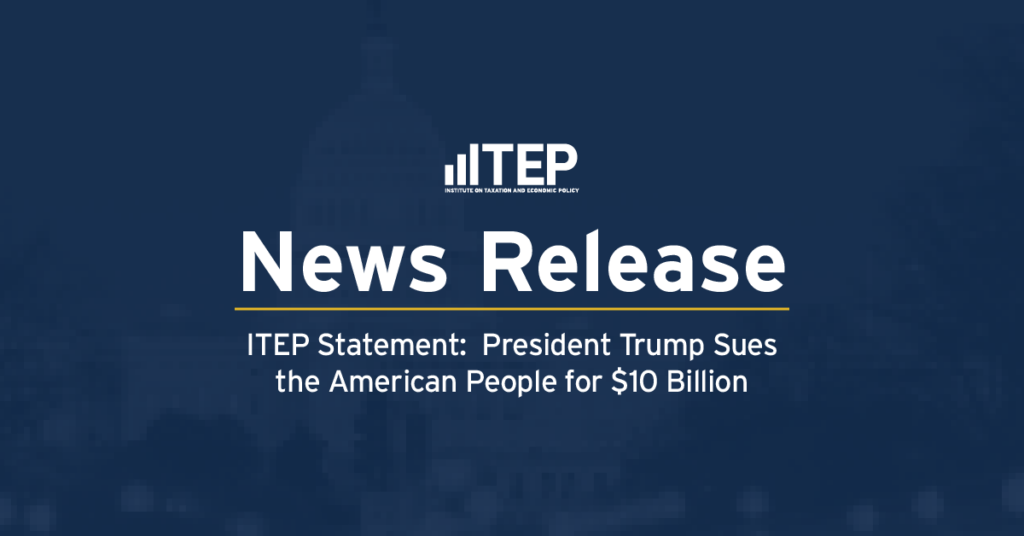Corporate tax avoidance is a perennial problem that is annually depriving the U.S. Treasury of tens of billions in needed revenue, a new report from the Institute on Taxation and Economic Policy (ITEP) reveals.
The report, Corporate Tax Avoidance Under the Tax Cuts and Jobs Act (TCJA), finds that 39 corporations paid no federal taxes over the first three years of the TCJA on a combined $122 billion in profits. This means that averaged over the three years, their tax obligation was $0. They received a collective $29.7 billion in tax breaks during that period. Seventy-three corporations paid less than half the statutory corporate tax rate over the same period. Together, they paid an average effective rate of 5.3 percent and collectively avoided $67.5 billion in corporate taxes.
The new report builds on a report that ITEP released earlier this year, which found that 55 profitable corporations paid nothing in taxes in 2020.
“It’s clear that many companies are paying abysmally low effective tax rates even in the years when they pay something,” said Matthew Gardner, a senior fellow at ITEP and co-author of the report. “Looking at a single year tells us a lot, but when we look at corporate tax-paying habits over several years, we get a better sense of the scale of the problem. This makes a clear case for Congress to enact significant tax reforms.”
The challenge of zero- and low-tax companies is a longstanding one. The 2017 tax law lowered the corporate tax rate but did not address most loopholes that allow profitable corporations to get away with paying little or no tax year after year. Household names like Amazon and Bank of America, for example, both paid an average effective tax rate of around 4 percent of their profits in federal income taxes in the three years since Congress enacted the TCJA. Over that period, Amazon received $7.3 billion in federal income tax breaks and Bank of America received $13.1 billion in breaks. These are just two examples highlighted in this report of corporations that paid some tax but nonetheless avoided billions of dollars in taxes.
President Biden has proposed corporate tax reforms that would curb corporate tax avoidance. First, he has proposed increasing the statutory tax rate from 21 percent to 28 percent, a significant increase but still well below the 35 percent rate in place before TCJA. Second, all profits that American corporations report that they earn through their offshore subsidiaries would be subject to a combined worldwide rate of 21 percent. The president also proposes to limit several other tax breaks by imposing a minimum tax equal to 15 percent of reported profits for corporations with more than $2 billion in revenue.
“President Biden’s proposals would not solve all the problems with our tax system but they could significantly reduce the worst corporate tax avoidance we have identified,” said Steve Wamhoff, director of federal policy at ITEP and a co-author of the report.




